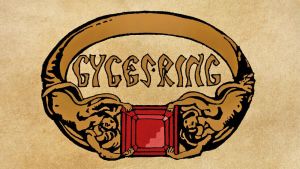Transparency
By disclosing non-editable transactional data from the inception of political or business organisations you can cut out a lot of the bullshit.
Imagine you were given a ring which makes you invisible much like Frodo in the Lord of the Rings. What would you do? Would you anonymously rob a bank or help a homeless person? It's argued by Plato that the majority of people would rob the bank[1], he argues that this is because humans are primarily selfish in nature. However, what if we turn this thought experiment on its head?
Imagine this time, instead of the ring hiding you from everyone, the ring shows everyone everything you do. Would you still get up to similar mischief? Or like what happens with CCTV, if you are watched or even just recorded the majority of people are unlikely to do wrong.
This is the principle of Radical Transparency and it should be the minimum we expect from someone in political office. If someone is given the privilege of public office, they should be required to disclose all transactions by default. In Australia, this is done, but only to an extent. Data is published by the AEC, for political transparency, but in a poor format, and there is a glaring loophole, dark money can funnel in if the donations are below $9,000. If a mining company, gambling company or optician company want to have their priorities represented all they need to do is make a shell company which donates several $8,999 donations.
To change this is extremely difficult, like the protection of tax havens, there is a bevvy of highly funded lobbyist present when transparency laws are put through parliament. The only other way to do this is to lead by example. Transparency is the primary tenet of The Transparent Corporation.
References
- ↑ Plato's Republic - Laird, A. (2001). "Ringing the Changes on Gyges: Philosophy and the Formation of Fiction in Plato's Republic". Journal of Hellenic Studies. 121: 12–29. doi:10.2307/631825. JSTOR 631825.
